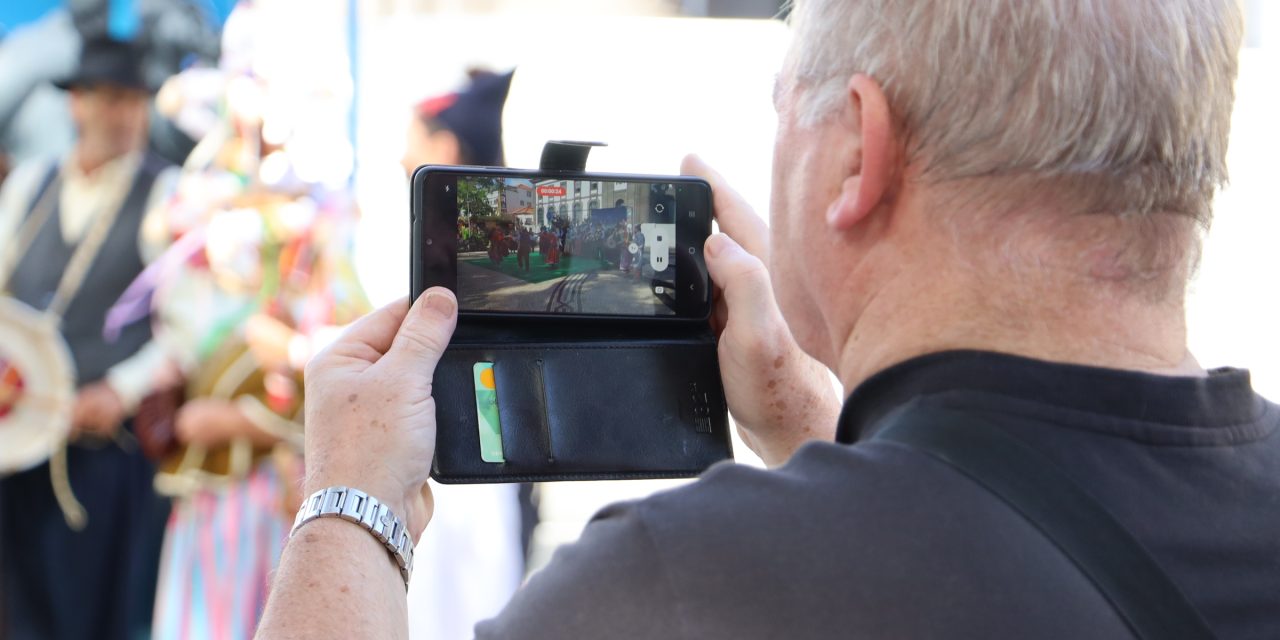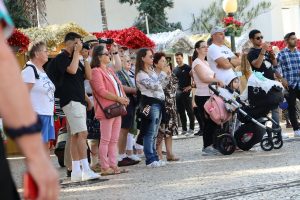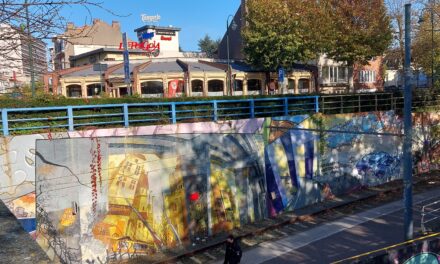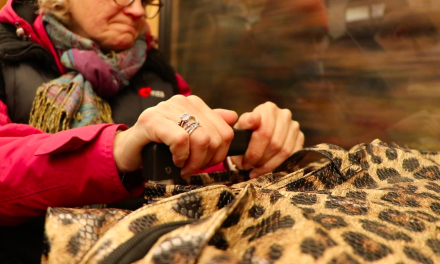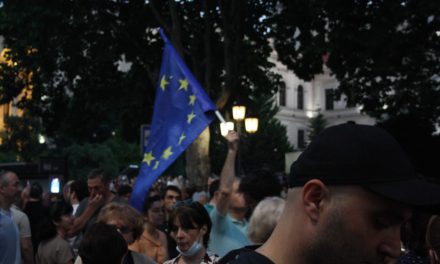“This is not normal,” says local taxi driver Flavio when asked about the weather in Funchal, the capital of Madeira. It’s December, and the temperature is over 25 degrees outside. There are no clouds in the sky, and you would not even know that it is the off-season in Madeira. While driving through the capital city, you see loads of tourists enjoying the sunny weather and drinking the local delicacy named Poncha, made from fresh juice and alcohol. For the tourists, the weather is not an issue. This scenario sounds more like paradise, but locals like Flavio know that there may be trouble in paradise.
Twenty-five degrees in December sounds perfect, but the issue is that it should not be this hot. Normally, the weather stays around 20 degrees in the capital in winter. The change is not enormous, and Flavio says that changes have been slow and may have gone under the radar.
Right now, locals are worried about climate change affecting the island’s temperature, heavier rains becoming more common, and sea levels rising. Climate change could drastically make Madeira a riskier location for tourists, meaning many would take their money somewhere with a more moderate climate. And for an island that is fully dependent on tourism, that would be a recipe for disaster. For example, most of Flavio’s customers are tourists, and it would directly affect his livelihood.
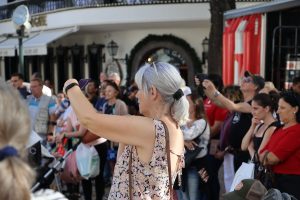
When the entire island relies on tourism, there is a risk
It is a 10-minute drive from Funchal Central to the University of Madeira. One professor, Luis Pinto Machado from the University, is worrying about the island’s future. Machado has conducted extensive research into Madeira’s tourism and economics. When talking with Machado, you can understand what Madeira’s current issues are. Machado emphasizes that almost everybody on the island contributes to tourism.
“Tourism directly contributes to 30% of the island’s GDP. Considering all the factors, tourism could reach maybe 60 or 70% of the island’s GDP. This is good because it is big business. However, it’s not good because we depend on tourism so heavily.”
Machado has the same attitude toward the island’s changing climate as Flavio. “This is not normal,” Machado says many times during the interview.
Right now, everything is fine in Madeira. Tourism is more popular than it has ever been. Hotels get fully booked during the summer, and even in winter, every tourist attraction experiences long lines. But in this scenario, there is one problem—humans love to be comfortable. The weather on the island is still enjoyable, but what happens when it gets too much?
In Madeira, people cannot simply live in the present without concerns for the future. The future is approaching, and currently, it appears to be accompanied by scorching weather.
“Madeira is popular because of its moderate climate. It’s not too hot, and it’s not too cold. If the weather becomes hotter, it is a problem, and people may go somewhere else for their vacations,” Machado said.
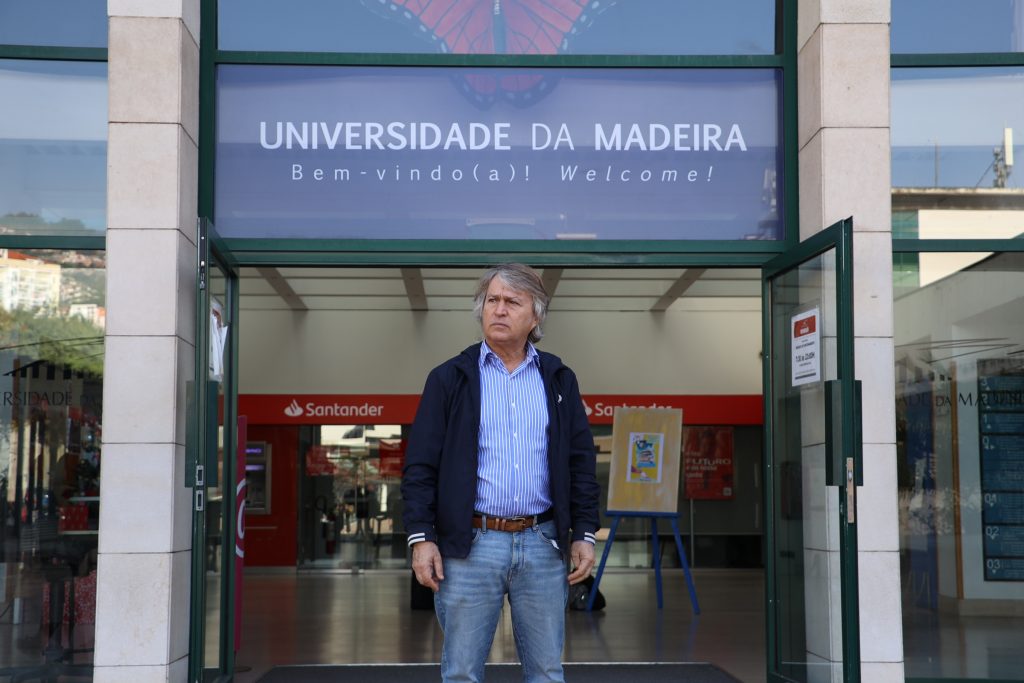
Luis Pinto Machado works at the University of Madeira.
Climate change is happening right now in Madeira
The regional government of Madeira is well aware of the importance of tackling the issue right now. Pedro Sepúlveda, Director of Services from Madeira’s regional Directorate of Environment and Climate Change, says that climate change is happening right now on the island. He says that people are feeling it.
“Unfortunately, we are aware of this. Fortunately, this has made it easier to implement new things. Severe events in the last years somehow made it easier, as strange as this might appear. It’s not a good thing to say, but it made the problem real. It’s not a theoretical thing that will happen in the future.”
The events Sepúlveda is referring to are devastating floods and huge wildfires. Especially in 2010, there were extensive floods in Madeira that killed 51 people. The most recent event happened in 2023 when a huge wildfire burned over 70 square kilometers.
Sepúlveda says that a few years ago, people in Madeira were not considering getting air conditioning for their houses because they could manage the temperature levels.
“This is not a unique event. Sometimes, the weather here is very warm throughout the year. But in the last few years, we have seen an increase in temperatures. The regional government is quite worried about this.”
In 2015, Madeira presented a regional adaptation strategy. Even though it has not been ten years since presenting the new adaptation strategy, Madeira is already conducting another strategy. Sepúlveda says that the strategy was based on climate studies from 2005.
“Climate science has evolved a lot in the last few years, so there was a need to conduct it again. Just very recently, we finished that work. Next year, we will conduct the second phase of the revaluation of the strategy.”
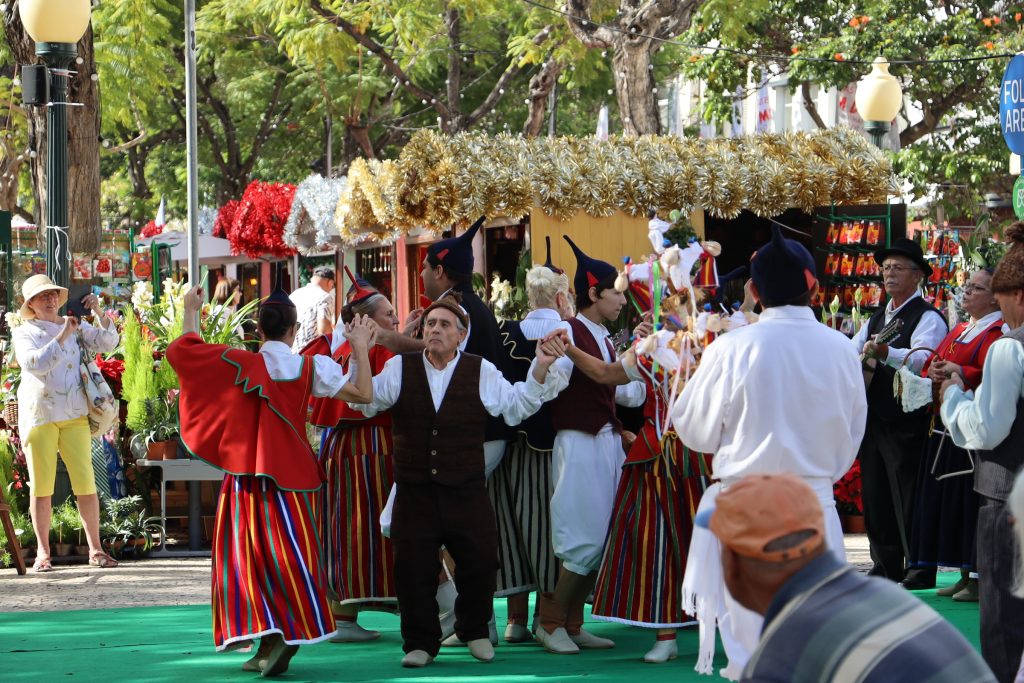
There are a lot of events happening for tourists in central Funchal.
One of the oldest tourist destinations in Europe
When you walk around Funchal, you can see the old buildings with terracotta tiles on the roof. Madeira’s rich architectural heritage, coupled with modern renovations, is a tourist attraction on its own. When Madeira became one of the first tourist destinations in Europe, builders constructed many of the buildings in the early 1900s.
Initially, Madeira attracted an elite class of tourists, including nobility and wealthy individuals. This had a huge economic boost for the island’s GDP, catapulting the hospitality sector on the island, and Madeira started to experience the first signs of mass tourism.
Madeira has won ‘Best Island Destination in Europe’ nine times in total. Sepúlveda is well aware that tourism is a priority in the island’s adaptation strategy.
“Tourism is the number one economic activity here. Tourists not coming would have a huge economic impact. That is why the tourism sector has also implemented new programs to evaluate the sustainability of the island.”
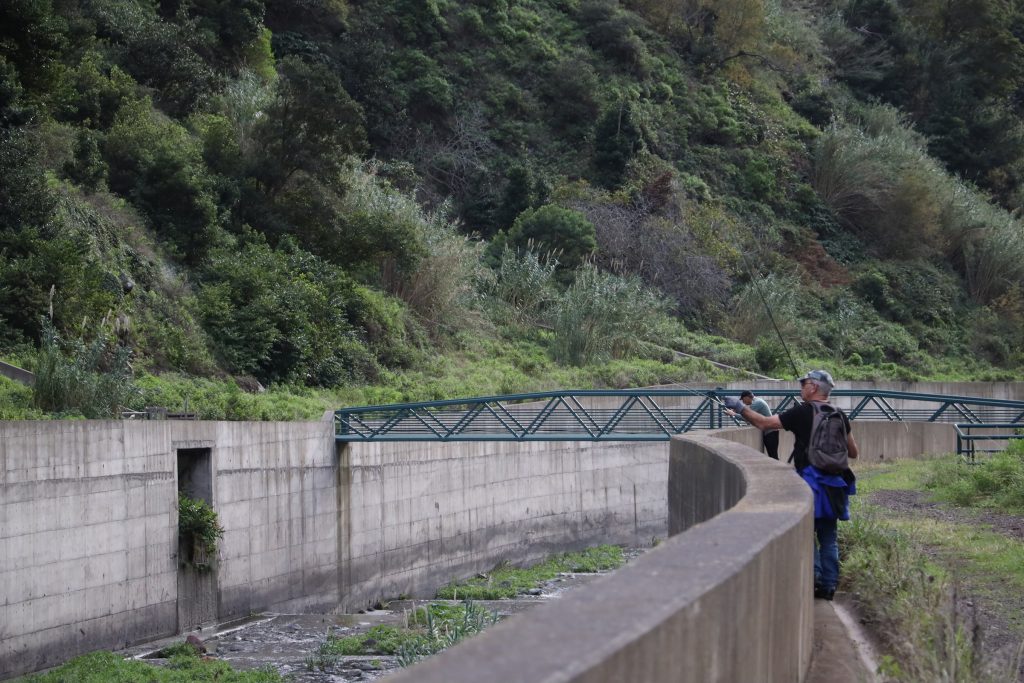
Huge channels bring water from the mountains back to the sea.
Natural disasters have already caused issues in paradise
When driving around Madeira, you can spot large man-made channels all around the island. They are there for a reason; during winter, there is a lot of rain, especially in the mountains. Floods commonly occur in Madeira. Usually, they just cause inconvenience, but in 2010, 51 people died during huge floods.
When Machado thinks about the events that happened over 13 years ago, he believes that the island was not prepared for that. Since that event, Madeira has undertaken vast projects to ensure that heavy rain doesn’t cause deadly floods anymore. With help from the European Union, the island has successfully prevented significant floods so far.
Pedro Sepúlveda is pleased that things are better, but he reminds us that there may still be even bigger magnitude rains in the future.
“The extreme events are getting more and more vicious. I am not quite sure that we can say that we have solved the issue. We cannot be confident that we have solved the issue.
Floods and wildfires immediately affect the island’s hotel bookings. Machado estimates that almost 90% of guests canceled their bookings straight after the 2010 floods.
“Imagine if you have a business, and 90% of your business is canceled. And that is a problem we are facing. When we have problems with tourism, we can’t rely on other things like agriculture.”
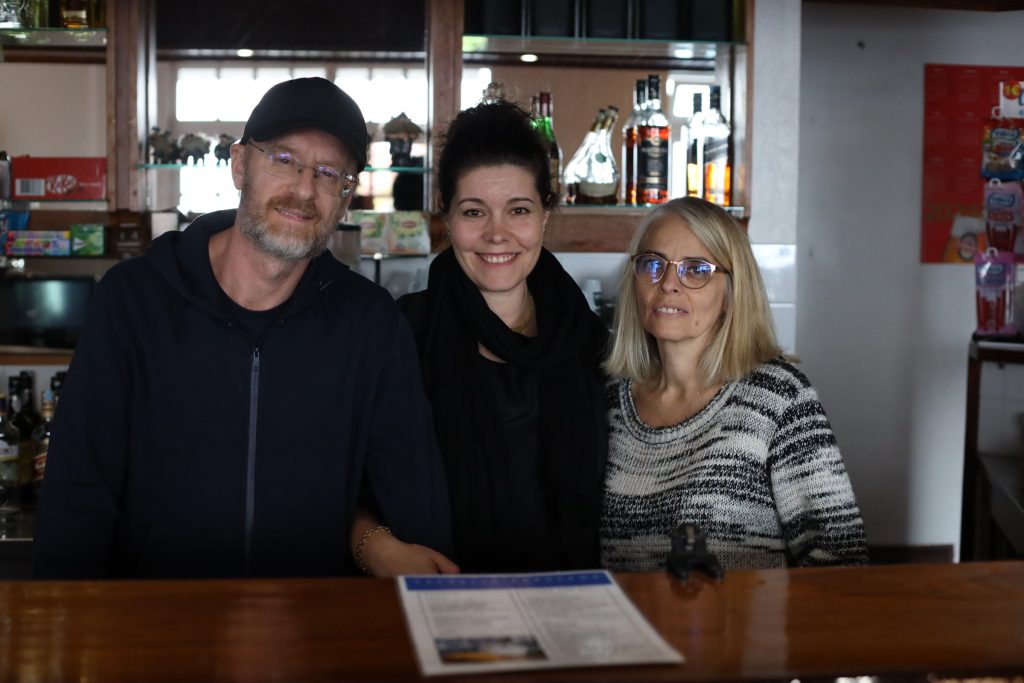
Denys Botes, Jenny De Luz and Micaela Jesus works in Valhalla Panorama.
Hotels are in danger of losing customers
Denys Bote runs Valhalla Panorama residence in Madeira. With his friend Odd Bjørn Jensen, they have been owners of an apartment hotel for over a year now. To them, Madeira is a paradise, and that’s why they named their residence Valhalla. Bote saw exactly what happens if there is a natural disaster on the island.
“Quite a few people canceled bookings because of the wildfires in October. Also, many people called us and asked if they should be concerned and if the wildfire affects them.”
In Valhalla Panorama, there also is working Jenny Da Luz and Micaela Jesus. Bote and Da Luz say that the weather is changing in a way that summer comes later, and winter extends longer into spring.
“Rain is very late. We used to have a lot more rain starting earlier. We had a horrible summer because it rained a lot in March, April, and May.”
Teresa Gonçalves Soares, General Manager of The Vine Hotel, estimated that there have been two big events in recent years that they consider exceptional wildfires in 2017 and 2023. Soares said that these events didn’t affect their bookings much.
“People get all the information they need online, so they are not concerned about these.”
So far, The Vine Hotel has had no issues with natural disasters affecting their business, but Soares highlights that climate change is already affecting the people of Madeira.
“It is affecting us and will affect us in the future. The landscape is transformed forever, and we do not know how far the consequences of that transformation will go. One thing we know, if it gets bad, tourists quickly move to another.”
